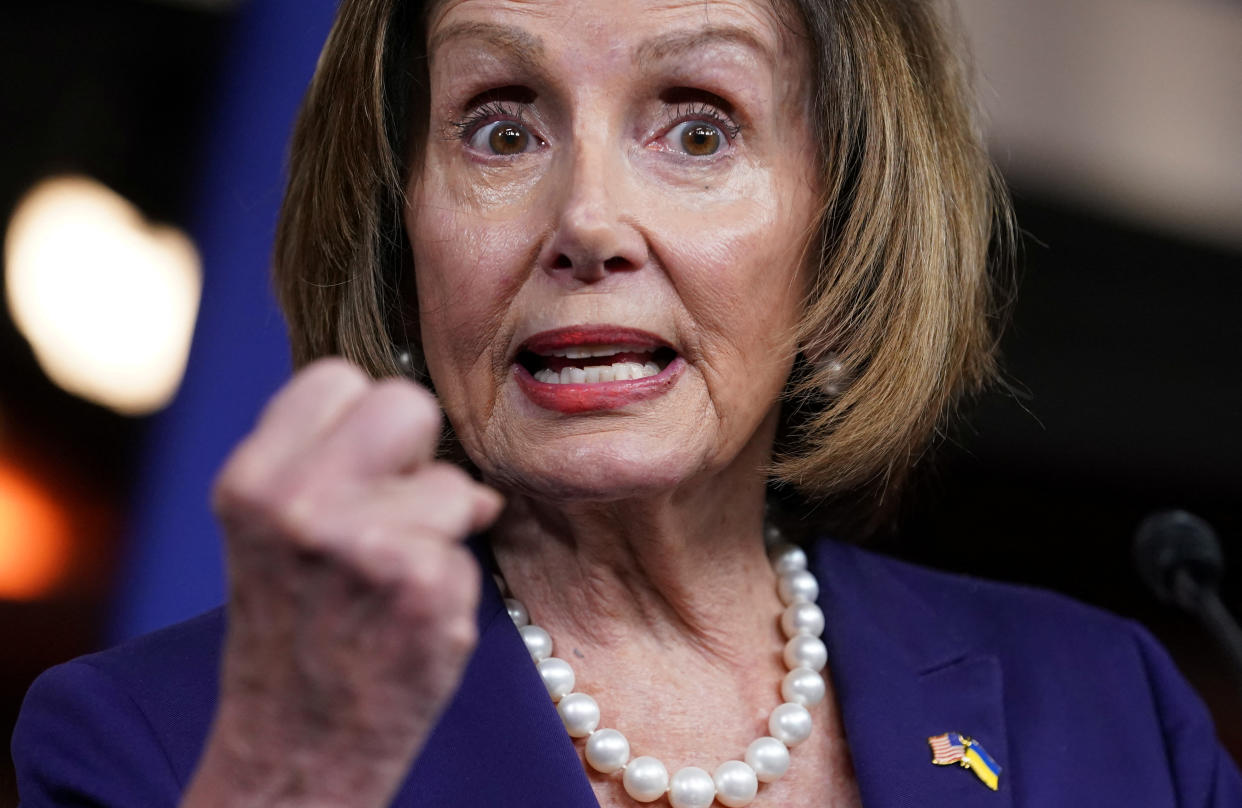Congress misses yet another deadline to rein in lawmakers' lucrative stock trades
Just two weeks ago, House Speaker Nancy Pelosi renewed hopes that Congress might stop lawmakers from trading stocks on the grounds that they have access to non-public information.
"We believe we have a product that we can bring to the floor this month,” Pelosi said on Sept. 14.
But Congress is taking a breather until Nov. 14, after missing yet another deadline to ban or curb stock trading by senators and U.S. representatives. Lawmakers promise to take up the issue again when they re-convene, but it's becoming clear that Congress is having a tough time policing itself.
The gridlock comes despite overwhelming public support for measures to rein in lawmaker trading, with the lack of action feeding the perception of corruption on Capitol Hill. Investors are going so far as to closely track politicians' trades — which have often out-performed the market — to gain an edge during this year's turbulence.
During a contentious weekly press conference on Friday, reporters pressed Pelosi on why the vote had been delayed. “Well, you have to have the votes to bring it up,” she said. “This is a legislative process.”

But her answer left many unsatisfied.
“This moment marks a failure of House leadership — and it’s yet another example of why I believe that the Democratic Party needs new leaders in the halls of Capitol Hill, as I have long made known,” Rep. Abigail Spanberger (D-VA) said in a scathing statement earlier on Friday.
A long wait for a vote
Ever since the stock trading issue exploded into public consciousness in late 2021, lawmakers have repeatedly promised to rein themselves in. Back in April, as one example, a deal was purportedly on the way “in the next few weeks,” as Sen. Kirsten Gillibrand told Yahoo Finance at the time.
The stock trading issue gained attention late in 2021 with revelations that, in the lead-up to the pandemic, then-Senator Kelly Loeffler (R-GA) and Sen. Richard Burr (R-NC) sold stocks soon after a private briefing on COVID-19. Burr faced a Justice Department investigation that eventually ended without charges, while Loeffler lost her election bid.
Pelosi herself has also drawn attention to the issue because of her husband's frequent trading activity, which has spurred traders to follow along for tips.
This week, House Democrats released an ambitious bill that would require lawmakers to divest financial investments and move the assets into a qualified blind trust or a mutual fund, ETF, or a government bond. The new rules would also apply to the president, the vice president, White House staff, Supreme Court Justices, and Federal Reserve officials.
But advocates fear going too big — especially including the controversial Supreme Court provisions — will sink the entire effort.
"While I support it in principle, I recognize that for some of our colleagues across the aisle, that may be a poison pill at this point in time,” Spanberger recently told Yahoo Finance, referring to the Supreme Court provision.
Predictably, some Republicans turned against the effort this week when Democrats released their bill.
“This is a complex issue requiring thought, debate, amendment and a full airing in committee to build as much bipartisan agreement as possible rather than the normal cram-down from the top that permeates literally everything we do,” Rep. Chip Roy (R-TX) wrote in a letter to Pelosi and House Administration Committee Chairwoman Zoe Lofgren (D-CA).
Spanberger and Roy have co-authored a bipartisan plan to require all members of Congress to put assets into a qualified blind trust while they're in office.

The chances in the ‘lame duck’
In mid-November, lawmakers will return to Washington for the so-called lame duck session. Democrats will still control Congress but might — depending on the outcome of the election — be eager to pass their final priorities before possibly relinquishing power in 2023.
Sen. Jeff Merkley (D-OR), another longtime advocate of a ban, took an optimistic tone during a TwitterSpace conversation with activists on Wednesday.
"This is a time to be encouraged, not disheartened," he said.
But he acknowledged a fight ahead, saying the back and forth in the House was “creating a broader discussion" that he hopes can get passed after the election.
"Sometimes, you just have to force the vote," he said.
Ben Werschkul is a Washington correspondent for Yahoo Finance.
Read the latest financial and business news from Yahoo Finance
Follow Yahoo Finance on Twitter, Facebook, Instagram, Flipboard, LinkedIn, YouTube, and reddit.
